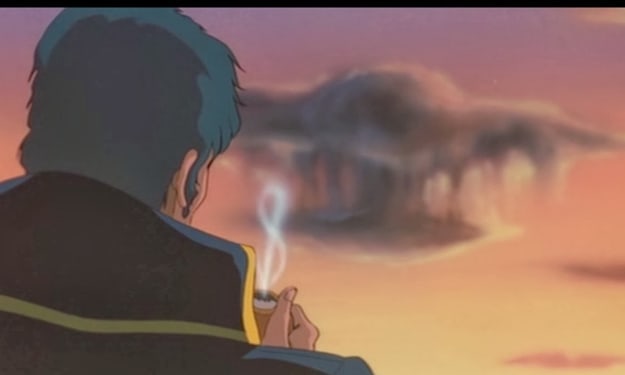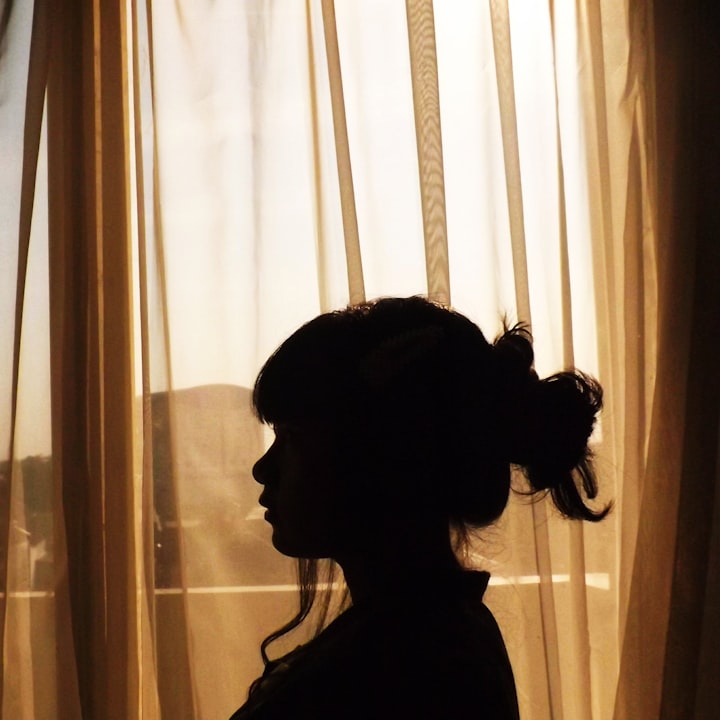The Doom of Kickball
The universe reminds us of our place.

[DISCLAIMER - I don't always feel as I do below, but sometimes things get very dark. What happened below truly transpired and did mark me, but I have been able to change. Most days are much better than this, but when things are sad, I sometimes remember why.]
When you see the world in terms of yourself as a failure, it is very hard to take actions that might otherwise elevate you to some stature of recognition, both amongst others and even with regards to oneself. For more than forty years I did not understand how I had been drowning in a raging river of this self hatred. Furthermore, I did not notice until late that the universe itself seemed to bend itself just a little to ensure that I would stay wholly dissatisfied with my own being, repeatedly reminding me that I was to be a living paragon of servile mediocrity, placed here to hold a low station of, at best, abject uselessness.
When I read The Iceman Cometh in high-school, I remember being a bit put off by some of the roughness of the characters, as well as the general tone and purpose of the play. In fact, the main purport of the play even escaped my memory until I looked it up online: I had forgotten that the ending was about how the one character with hope was actually a mad murderer. What I did recall clearly was that this man absolutely terrified all the characters with no hope (basically everyone else in the play). And it was those hopeless men who were, in turn, terrifying to me as a highschool student, though perhaps for different reasons than at present. Their hopelessness and inability to do things as simple as walk around a city block, seemed unrealistic. Such despair, even to a depressive such as myself, seemed fantastically overblown. I could not understand how an adult, something I still did not consider myself to be throughout all of high-school, could not simply, through strength of volition, go outside and walk around the block.
Now that I am a slovenly failure stuffed sausage of a person bordering on simply being another old man on the way to a meaningless death, I think I can understand how this type of person in stasis comes into being, and that the majority of adults are, in fact, people stuck in the calcified death spirals they could not escape even if they wanted to. I also have a sense of how the universe can set someone up to hold such a position, as the universe needs such dying figurants to let the readers know who in the world is actually worth anything.
When I was young and teetering on the edge of lifelong depression, we used to play a game in P.E. class that seemed designed to exacerbate the various unhealthy social distortions that young children were busy imprinting into themselves as blueprints for their adulthood. Kickball was a disaster for, in my opinion, almost everyone. Children with physical ability, and the usual attendant popularity and charisma of those who know they are skilled, were lavished with praise and adulation by teacher and student alike. Whatever budding egotism they had was made to grow monstrously fat on the luscious accolades of playground victories.
Those of us who had no such physical ability were unceremoniously crushed. Repeatedly. From multiple vectors. The adult teachers could barely contain their scorn for those of us who could not contribute “meaningfully” to their games. Teammates would boil in frustration and, being children, later take out their frustrations on the weakest of us as the only causes for their stinging defeats. The opposite team, with peals of joy like the chiming of bright campus bells, would mock their prey and extol their virtues during the game and for hours afterwards. The individuals of prowess were one last avenue of deprecation, always finding some way to remind those of us who could not, just how pathetic and unworthy of even serious disdain we truly were.
The most able of boys in my third grade class was Adrian. Energetic. Handsome. Free of any clumsiness. Adored by anyone who was not the target of his aggressions. It was assumed that if he was on your team you would win. If he was up to kick, it was a homerun. The other team moved in close just in case he decided to “bunt”, since it would be impossible to catch the ball should he actually decide to kick it. It seemed impossible to stop him, let alone hinder him in any way. Though we did try. And once, I succeeded.
As those of us seen as deficient often are, during our teams at field, I was sent to a remote end of the playground. Outfield, as it were. From my place of banishment I simply watched the game play out, finally out of everybody’s hair, including the teacher’s, finally unable to cause or get into trouble. I was on the doomed team, as Adrian’s team was at bat. I watched, lost in a daydream of childhood anxieties, as my teammates did a fair job of managing the kicked balls and runs of the other team. We were doing fairly well for the time being. I can no longer recall how many runs the other team had scored, but they eventually had two outs. Not wanting to lose control of the kicking station they sent up Adrian to ensure that they got at least one more point before having us at bat.
The majority of our team moved towards the catcher’s mound hoping to catch any potential bunts. For reasons I do not recall, I did not move in at all. I stayed further out. Perhaps the team had forgotten I was there to order about. I don’t remember the pitch, I don’t remember the details of the kick. I do know that the ball did the same thing it always did when Adrian kicked it; it rocketed away from him and into the sky. One other interesting attribute of this recent successful kick was that it was going exactly in my direction.
If Adrian had been watching the arc of his ball I doubt he would have been worried. I wasn’t known for much more than being odd and an easy target for bullying. If I hadn’t moved, or even if I had moved at speeds most expected from me, the ball was going so high and so fast it would easily have flown over and past me. I’m assuming that even if he had been watching it, and if he had noticed that I was, in fact, running to catch it, he would still have been unworried as there was no way anyone as clumsy and useless as me could manage to catch and hold a big red kickball. But something different happened that day. I saw the kick and the vector of the ball and simply turned my back on it and ran with a speed startling even to myself. I ran blindly, looking up to watch for the arc end of Adrian’s kick. As the ball fell into view I knew I would have to leap for it, and so, without any reflection upon the fact that we were playing on asphalt, I did leap.
Instead of reaching for the ball I interwove my hands as I sailed through the air, and made a circle with my arms. I could not risk trying to apprehend the speedy projectile with my clumsy fingers, so I had to make sure the ball would land in my arms and stick, not simply bounce out. And I must have gauged the exactly correct size circle needed from my arms because I caught the ball. Then I landed on my knees and skidded at least a foot, shearing through my pants’ knees and into several layers of the epidermis of my knees. But I could not feel pain at that point. I had the ball. It was wedged firmly into my circular arm grip. I remember being surprised that I hadn’t heard any sound at all from behind me, where all the other kids and the teacher, who was the umpire, and should have said “out!”, were probably still standing. So I stood up and turned around.
All eyes were on me, and in none of them did I see joy, celebration, or gratitude. Not even among my own teammates. Not even from the P.E. teacher. All I can say about it is that I felt that everyone there was a little shocked. The shock was not that Adrian was out. It was not even that someone was out, but that I had taken some form of functionally “successful” action. And perhaps it was that shock that drained the success entirely from the completed act. Adrian’s shock quickly turned to rage, though he interiorized it quite quickly, somehow keeping a more usual tantrum in check. The teacher may or may not have officially declared the out, though we did change to be at bat. I remember, very clearly, walking up to the teacher and saying something excited and hopeful. Something like, “I caught the ball! I got Adrian! But I hurt my knees”
The teacher, grizzled, though he could not have been out of his forties, didn’t even look at me. Somehow annoyed, yet wistfully gazing, with bored eyes, somewhere over my head and past me, he managed to utter, “Well you shouldn't have caught it that way.” I understand now, as an adult, that it is foolish to expect or demand praise from the cruel, selfish people around us. That must be most people on the average day of any given adult. But this man, whose job was to find ways to encourage children to take up physical activity, couldn’t even be bothered to celebrate what I know was a feat of intense physicality from a student that normally didn’t try. If he said anything after that I didn’t hear him. I can’t remember hearing anything of note from anyone after that.
Adrian fumed. His team scowled. My team didn’t celebrate or say anything to me. I didn’t know what to make of any of it. I just know that the details of the day fade back into the morass of general grade-school background noise, darkened subtly for what one hoped would not be the rest of time. The universe had a message for me: don’t try above your station. I couldn’t hear the details of the statement at the time, for my child’s mind was still innocent and did not attribute suffering to outer factors. Thus the message, beyond normal perception, was burned into me by me, changing my fundamental shape, even if only just a little. The prism of my self was slowly warping and the universe ensured that it was towards a darkened state.
From my position in the present, with bloated exterior and shriveled heart, I now see that the Iceman Cometh was a portent. For some it was perhaps a warning. For me, it was a terrible setup; a future irony which would further underscore my meaninglessness. I have become the awful, pitiful, static old men, trapped in their worst leisure pastime, terrified of the world, and from here I can only get older.
About the Creator
Stéphane Dreyfus
Melanchoholic.
It’s just me. Growing old and wrong. A time lapse bonsai soul, clipped and curtailed in all the worst ways.






Comments
There are no comments for this story
Be the first to respond and start the conversation.